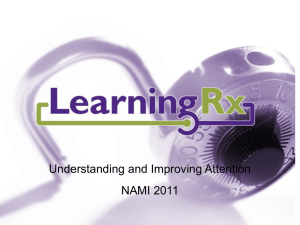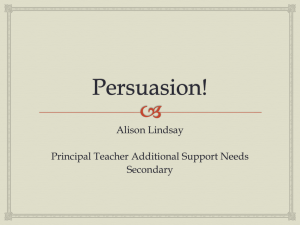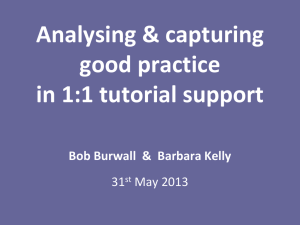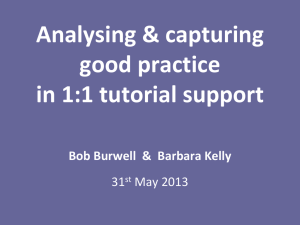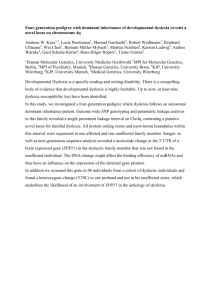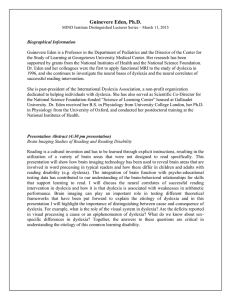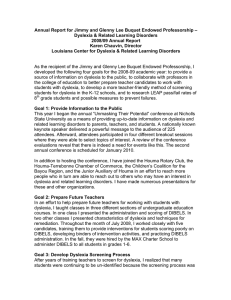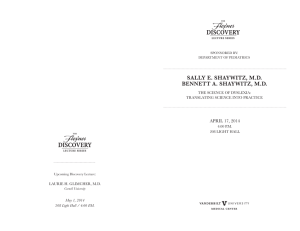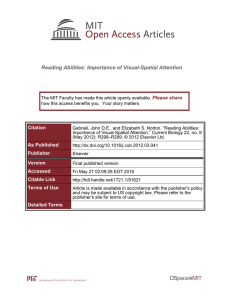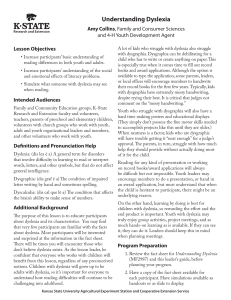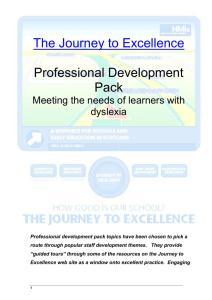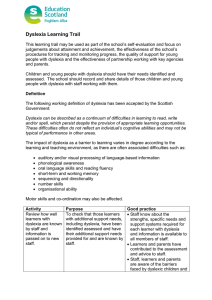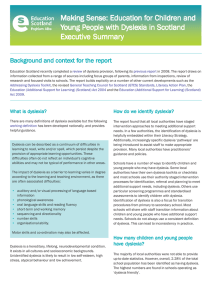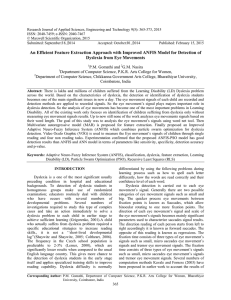Research Questions:
advertisement
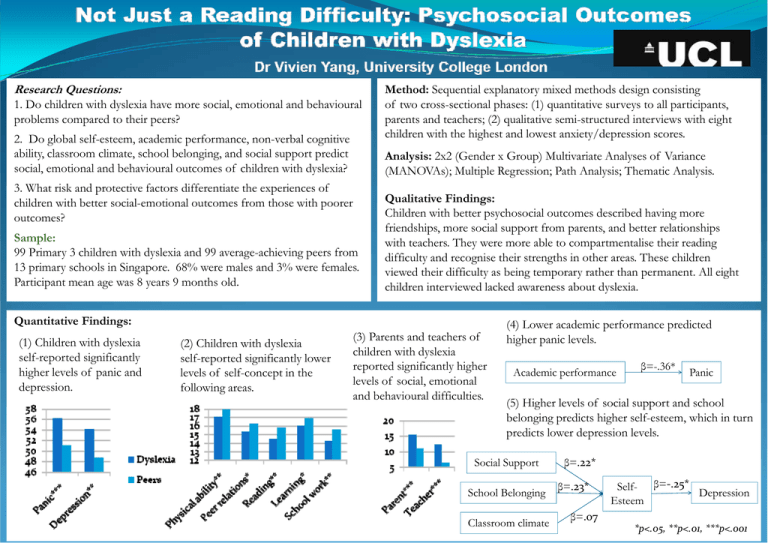
Research Questions: 1. Do children with dyslexia have more social, emotional and behavioural problems compared to their peers? 2. Do global self-esteem, academic performance, non-verbal cognitive ability, classroom climate, school belonging, and social support predict social, emotional and behavioural outcomes of children with dyslexia? Method: Sequential explanatory mixed methods design consisting of two cross-sectional phases: (1) quantitative surveys to all participants, parents and teachers; (2) qualitative semi-structured interviews with eight children with the highest and lowest anxiety/depression scores. Analysis: 2x2 (Gender x Group) Multivariate Analyses of Variance (MANOVAs); Multiple Regression; Path Analysis; Thematic Analysis. 3. What risk and protective factors differentiate the experiences of children with better social-emotional outcomes from those with poorer outcomes? Sample: 99 Primary 3 children with dyslexia and 99 average-achieving peers from 13 primary schools in Singapore. 68% were males and 3% were females. Participant mean age was 8 years 9 months old. Qualitative Findings: Children with better psychosocial outcomes described having more friendships, more social support from parents, and better relationships with teachers. They were more able to compartmentalise their reading difficulty and recognise their strengths in other areas. These children viewed their difficulty as being temporary rather than permanent. All eight children interviewed lacked awareness about dyslexia. Quantitative Findings: (1) Children with dyslexia self-reported significantly higher levels of panic and depression. (2) Children with dyslexia self-reported significantly lower levels of self-concept in the following areas. (3) Parents and teachers of children with dyslexia reported significantly higher levels of social, emotional and behavioural difficulties. (4) Lower academic performance predicted higher panic levels. Academic performance β=-.36* Panic (5) Higher levels of social support and school belonging predicts higher self-esteem, which in turn predicts lower depression levels. Social Support School Belonging Classroom climate β=.22* β=.23* Self- β=‐.25* Depression Esteem β=.07 *p<.05, **p<.01, ***p<.001


